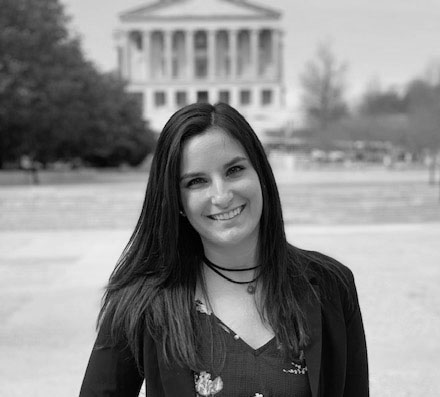Best Practices to Maximize Conversions in Paid Media
A conversion happens when a visitor to your website completes a desired action. In other words, it is when a customer undertakes a certain action in response to a marketing message. These desired actions can be any marketing goal set by the company, like:
- Completion of a form
- Email newsletter signup
- Free trial/demo sign-up
- Subscription/membership renewal
- Website visit
- Purchase a product or service
The use of paid media is an effective strategy to maximize conversions. On average, people around the world spend 145 minutes on social media per day. If people are spending so much time on social media, then they are likely to provide more information about themselves (e.g. filling out a form for receiving a free sample of a product). Marketers can then access demographic information about an audience better when using social paid advertising, resulting in better targeting and conversions.
Let’s start by breaking down why a business may want to focus on maximizing conversions as a business goal.
Business Goal: Maximize Conversions
Depending on the type of business you run, your conversion goals may differ. Even when sales are the ultimate goal, smaller conversion goals can help in determining whether prospects are making it through the funnel efficiently or not. Not every prospect is ready to become a paying customer, but providing a variety of top to bottom-funnel conversion points can help determine what conversions are leading to successful sales, and what conversion points are falling through the cracks.
What is an ideal conversion rate?
Ideal conversion rates fluctuate in different contexts. A Louis Vuitton website, for instance, won’t have the same conversion rate as Walmart’s or Target’s website that appeals to a larger audience, or a conversion goal of a free trial is likely to have a higher conversion rate than a request a quote goal just based on value offering and where it lays within the funnel.
Factors that influence conversion rate include:
- Business type
- Traffic source
- Relevance/ value offered
- Website optimization
- Personalization
- Customer service
- Accessibility
Source: unbounce.com
How to maximize conversions using paid media:
At this point, your prospects are interested enough in your offer that they’re making the decision to convert. Below are some tips on how to get your prospects to take action after engaging with your ads:
Optimize landing pages
Your landing page is key to a successful conversion. Your landing page should be a continuation of your ad’s message and brand, and provide an easy user experience for their next step.
- Pages should be responsive, not just for the desktop, but also for the mobile version as well.
- Make sure that the action/offer you are requesting is clear
- Make sure the landing page copy matches what is written in the advertisement
- Briefly highlight the main benefits and features of the offer, use bullet points to keep it simple and easy to read
- Include client testimonials and social proof with client logos
Use heat maps on web pages and landing pages
A heat map shows how users interact with digital content and page elements. Use this data to see where drop-offs occur and where you might want to test different formats, colors, or copy to see if the conversion rate increases.
Visitors’ web-browsing activities can be tracked with a heatmap to show:
- If there are any friction points, they indicate it.
- Visitor interaction with calls to action is visualized in heatmaps.
- Which parts of a page visitors interact with the most, as well as which page elements prevent conversion.
Focus on a clear CTA
CTA (call to action) provides the audience with a clear next right step of what they need to take. While you might think having multiple options (subscribe, book a meeting, learn more) for your customers to take might seem like a good idea, it’s best, however, to use one CTA per offer so it’s clear what their next step is expected to be. The clearer and easier the CTA ask is, the more chances are that a customer will take an action. Skip generic CTA’s and try to have the wording of your CTA in such a way that it highlights the benefits of your value offering. For example, “click here” isn’t very informative and may detract from users taking action, but using clear text like “schedule a demo” makes it clear to the user that by moving forward they will schedule a time to see a demo.
Mobile-friendly advertisements and websites
According to a popular saying, first impressions are lasting impressions. While it may not be true for all cases, it is definitely true for mobile websites and advertisements. Businesses should make sure that their websites and advertisements are optimized for mobile devices. Mobile experiences account for approximately half of the web traffic worldwide, so you do not want to risk hurting your conversion rate due to an advertisement not loading properly. In addition to hurting conversions, a poorly optimized website prevents customers from returning as it hurts your brand’s credibility.
A/B test regularly
The interesting thing about marketing is that it is not a science. The same marketing formula that has been proved before does not guarantee that it can be applied in the future. Use A/B testing to prepare different versions of copy, designs, formats, etc. to ensure you’re displaying versions that your audience prefers, maximizing the effectiveness of your campaigns and conversion possibility.
Remove unnecessary form fields
A successful conversion strategy needs to be backed by a solid lead generation campaign. This often entails filling out forms. Creating a form may seem like a piece of cake, but there are many considerations such as the number of fields, copy of the form, and the colors, to name a few, that may be a contributing factor.
The number of fields on a form will vary depending on the company and its offer while the more data you have on your contacts is best, using forms with 5-7 fields is most common. Think of the most important information you absolutely need from your contacts to convert as you want to make the conversion process as easy as possible! The rule of thumb is the more fields you require, the better the offer should be. However, if you’re looking for highly qualified leads no matter the offer, and aren’t super concerned about your conversion rate, then sometimes having more fields in your form could work in your favor as your contacts see the value you’re offering in the trade-off of providing more information.
Use UGC content to maximize conversions
UGC (user-generated content) acts as social proof that helps with conversions. Around 55% of users trust UGC over any other form of marketing as the messaging is coming from consumers, instead of through the business. In turn, the trust established through this process motivates potential customers to take the actions you want them to take.
Sell directly from social media
We live in times where we have the advantage of shopping directly from social media. Try to leverage this to increase conversions. If you have an eCommerce business, keep an eye out for certain products you can sell directly through social media as reducing actions required from the customer can increase conversions.
Key Takeaways
Although ‘maximize conversions’ shouldn’t be the only goal of your paid media campaign, it is a metric that can aid your other business objectives as well. Try the best practices listed above to find out what works best for your business’s paid media campaigns.
Would you need assistance implementing these best practices? Let Pyxl assist you! With years of experience in paid media, we are sure to be able to help your business reach its marketing objectives. Let’s talk!
Updated: Apr 13, 2022
 Pramita Pramod
Pramita Pramod Kati Terzinski
Kati Terzinski Erin Murray
Erin Murray